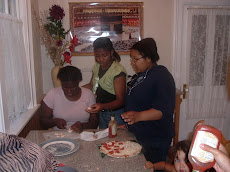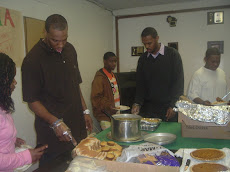"Operation Survival" has provided myriad program services for neighborhood youth ages 12-18 for nearly 15 years. Historically perceived to be a basketball program, basketball has merely been the proverbial "carrot" with which to attract young people to the other more significant program services provided. Primarily, academic monitoring and assistance, study tables, career planning, Life Skills and Personal Asset Development, etc. have always been at the heart of the program, which funders support for its measurable accomplishments in diverting youth from gang involvement and other unhealthy choices.
A program service component emerging from the institutional realities of the local school system policies addressing young people who struggle in the typical school setting is something we call "Half Full Prep." Starting as early as sixth grade, some students are released from school after only a half day, reportedly due to behavior issues. Some youth are referred to complimentary programs such as an anger management class or the MAC (Mack Achievement Center), again for a half day of schoolwork. We find these students arriving at the Bray Center during a time of the day when we would not normally allow school-aged kids to be here, well, because they're supposed to be in school. Since they are officially released, however, and we do check on the legitimacy of each claim, we do not turn them away. Rather we enjoin them in initial conversation about the reasons for their status, the steps required to achieve re-entry into the full school day, and how we can work together with them to reach that goal. Sometimes this involves academic tutoring (though many of them are quite academically gifted, especially in math we find), and more often it requires personal asset development strategies to reinforce the individuals ability to fend off the temptations of taking "short-cuts" or making excuses for not doing the basics required to remain in school. An eye toward a future of productive and satisfying adulthood keeps the program focused on academic accomplishment, eventual gainful employment, and social responsibility among participants.
We all know that the program produced an NBA All Star, but few know of the hundreds of college graduates in countless professions who return to acknowledge the staff for the impact the program had on their success. Fewer still know about those who at minimum graduated from high school or simply completed a GED, allowing them to take classes at Gateway or use the remains of their hoop dream to go on to a junior college on scholarship. And then there are those who veered away from the program, wound up unemployed, disconnected, or incarcerated, then wrote or visited us saying, "If only I had listened to you when I had the chance." Given the agency programs offered, we are able to direct many "Operations Survival" participants into the pre-college preparation program activities also offered at the Bray Center through GEAR UP (described above). Originally funded years ago by Youth Fair Chance, then picked up by Department of Corrections, the program is currently supported by the State of WI Office of Justice Assistance.
Friday, July 22, 2011
Thursday, July 21, 2011
R.E.A.C.H.
R.E.A.C.H. program services are devoted to the development of personal assets among neighborhood youth and families who frequent the Bray Center. Categories/Names of Asset Development we use include: Boundaries and Expectations, Safety, Caring, Responsibility, and more. A densely populated neighborhood eliminates much need for the typical "outreach" most programs must facilitate. Our kids either tumble off the bus during the school year, some needing a snack or a tissue, or roll out of bed in the summertime, when some arrive sock footed only to be returned home for shoes. Often, parents stream in soon after the children arrive, either joining in the activities or scolding the child who left the house without permission. Of course, the first target of the children is the gym. To get there though they must make their way through a handful of agency staff who greet them upon every visit (safe & caring environment) and expect to be greeted in return. They know the rules they must follow to be allowed to stay: no cussing, hands to yourself (boundaries), no spitting in the bubbler, etc. Older ones begin pleading for time in the computer lab (My Space, Noggin, NBA.com and the like are closely monitored for time limits and content). Soon, Reader Rabbit, Learn to Type, V-Tech, and Leap Frog software preempts what brought them in. Impromptu spelling bees are a favorite, as is dodge ball.
R.E.A.C.H. (Recreation, Education, Advocacy, Cultural Competence, Health) originated as the program service umbrella of the "new" Bray Center over 18 years ago when the current administration came on the scene. Then, it was the only funded program as Uniteed Way agreed to provide probationary resources after the previous administration led to defunding by all sources. As the three month probationary period wrapped up in 1994 leading to official "Partner Provider" status. Today focusing on the asset development of young children, starting at age six, and their families. Over the years, changes in social service lingo and buzz words have been successfully absorbed and disseminated by the Bray Center, bringing all its participants to greater levels of achievement. In 1994, when contracts issued by most funders to most agencies were based on entitlement, the Bray Center was working 24/7 to help the children and families in the neighborhood identify and put to use their natural gifts and talents, which appeared to be underestimated by the world around them. It seemed as though it was 1964 or 1974 in the formative years of the organization, whose mission statement then, remains virtually intact today, as the founders of the organization envisioned.
Between then and now, R.E.A.C.H. took on a heavier than expected focus on the collection of grades, attendance, and progress reports from the schools attended by children in the neighborhood. While not a bad idea with regard to establishing benchmark data to achieve viable measurement of outcomes, those years were rough on staff and youth. First, this was a much more staff hour intensive approach, which actually reduced face-to-face time with the kids. Then, the young people struggled to understand why after a full school day (including an hour and a half round trip bus ride each day), with no homework assigned for so many designated to "Learning Disabled" classes, with 97% attendance, and no disciplinary slips for the day (we frequently did random checks with school personnel), they were relegated to study tables as the gym stood in darkened quiet. They did not have to stay. They were free to come and go...and go they did... the unsupervised park around the corner, the corner store selling both bruised produce and rolling papers, the street corners sometimes supervised by officers with lights whirling. We worked with UWRC support staff and leadership to revamp R.E.A.C.H. We went back to the beginning...now we know what to call it...youth and family asset development. We found the Search Institute website. Here and other places we also found affirmation in what we always knew the Bray Center existed for...providing direct and personal services and development to neighborhood youth and families.
R.E.A.C.H. (Recreation, Education, Advocacy, Cultural Competence, Health) originated as the program service umbrella of the "new" Bray Center over 18 years ago when the current administration came on the scene. Then, it was the only funded program as Uniteed Way agreed to provide probationary resources after the previous administration led to defunding by all sources. As the three month probationary period wrapped up in 1994 leading to official "Partner Provider" status. Today focusing on the asset development of young children, starting at age six, and their families. Over the years, changes in social service lingo and buzz words have been successfully absorbed and disseminated by the Bray Center, bringing all its participants to greater levels of achievement. In 1994, when contracts issued by most funders to most agencies were based on entitlement, the Bray Center was working 24/7 to help the children and families in the neighborhood identify and put to use their natural gifts and talents, which appeared to be underestimated by the world around them. It seemed as though it was 1964 or 1974 in the formative years of the organization, whose mission statement then, remains virtually intact today, as the founders of the organization envisioned.
Between then and now, R.E.A.C.H. took on a heavier than expected focus on the collection of grades, attendance, and progress reports from the schools attended by children in the neighborhood. While not a bad idea with regard to establishing benchmark data to achieve viable measurement of outcomes, those years were rough on staff and youth. First, this was a much more staff hour intensive approach, which actually reduced face-to-face time with the kids. Then, the young people struggled to understand why after a full school day (including an hour and a half round trip bus ride each day), with no homework assigned for so many designated to "Learning Disabled" classes, with 97% attendance, and no disciplinary slips for the day (we frequently did random checks with school personnel), they were relegated to study tables as the gym stood in darkened quiet. They did not have to stay. They were free to come and go...and go they did... the unsupervised park around the corner, the corner store selling both bruised produce and rolling papers, the street corners sometimes supervised by officers with lights whirling. We worked with UWRC support staff and leadership to revamp R.E.A.C.H. We went back to the beginning...now we know what to call it...youth and family asset development. We found the Search Institute website. Here and other places we also found affirmation in what we always knew the Bray Center existed for...providing direct and personal services and development to neighborhood youth and families.
Subscribe to:
Comments (Atom)


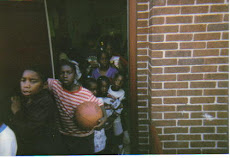.jpg)


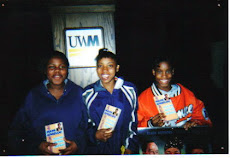.jpg)

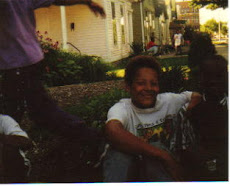.jpg)





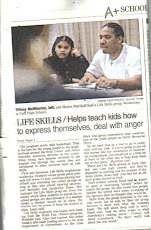.jpg)

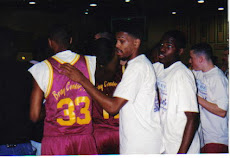.jpg)
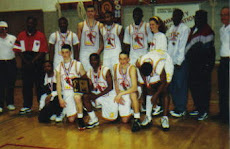.jpg)
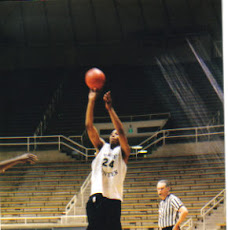.jpg)
